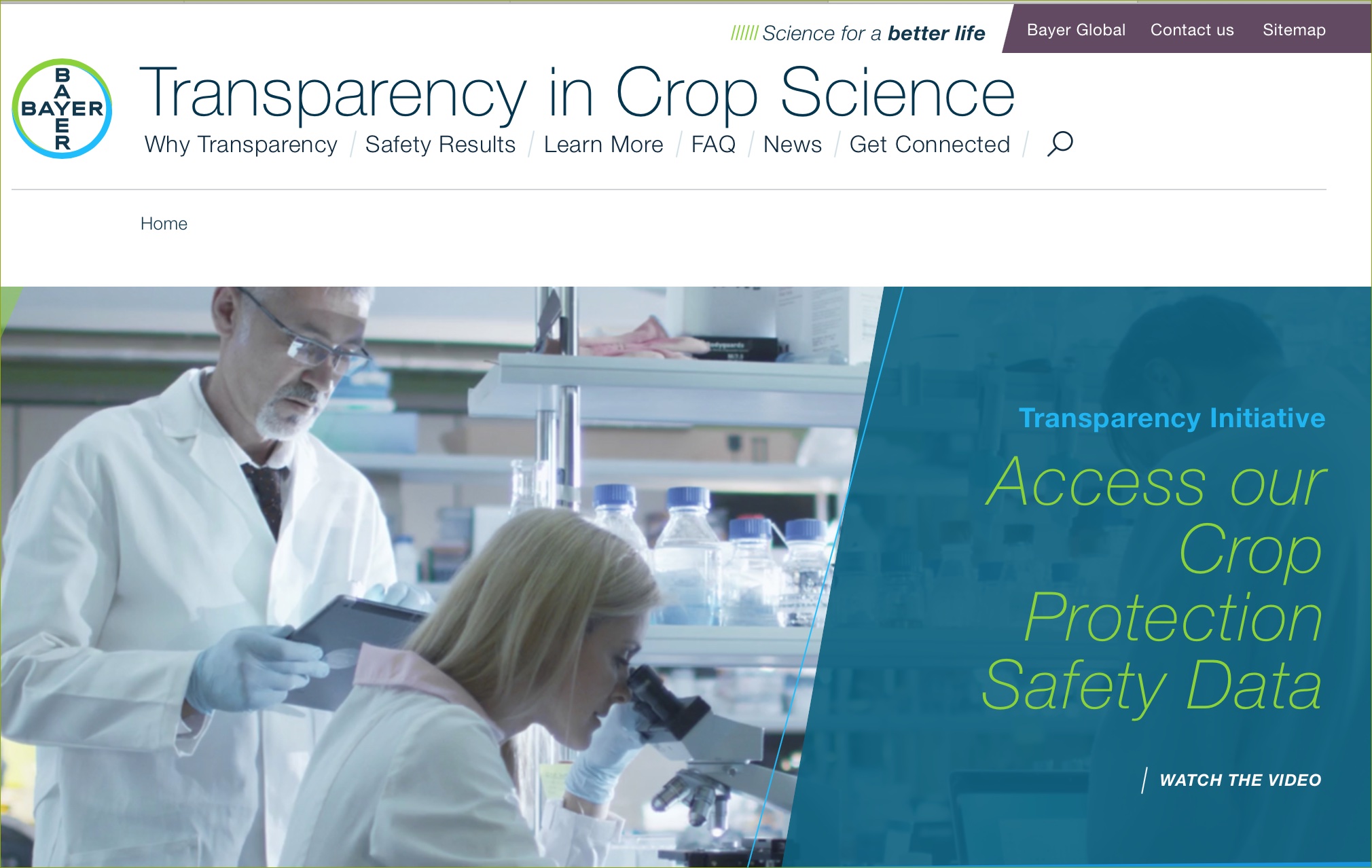A headline of the week mentions Bayer, the new owners of Monsanto, declaring a decision to have summaries of safety test studies on glyphosate made pubic on its transparency platform. In my view, such headlines are misleading and might not cover the whole truth.
The story starts in the early 1970s in the US, when Monsanto submitted these safetyy test documents on glyphosate to the Environment Protection Agency (EPA).
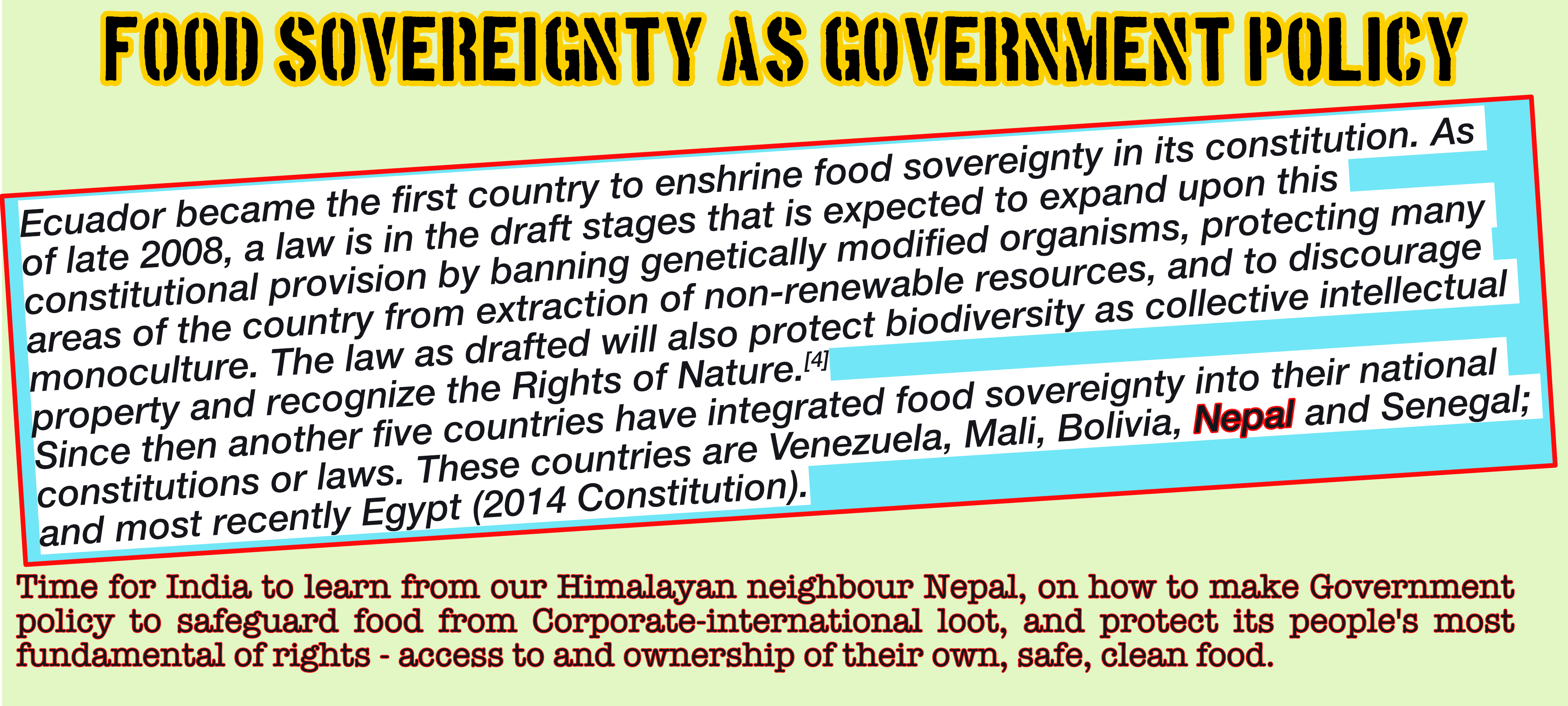
Not every nation is falling for poisoning itself with glyphosate. There are a small group of small nations that are ahead of the rest of the planet and attempting to preserve nature, flora, fauna and agriculture, and thus preserve all life, humans included. One could take their example.
The papers should have included proof that presence of glyphosate in food did not harm humans or animals.
Such proof usually involves laboratory tests on health of two groups of identical animals, where one group was exposed to glyphosate in their food, while the other lived the same lifestyle and ate the same food, but without glyphosate. The comparison of health parameters of these two groups, are used to determine if glyphosate makes the test animals sick compared to the other group, or not.
Such safety test report should contain both the summary report from the scientists conducting the tests, as well as all the supporting raw data, based on which these summaries were made.
Finally, the regulatory authority, such as the EPA, is obliged to make these safety test reports and data public, and subject to public scrutiny.
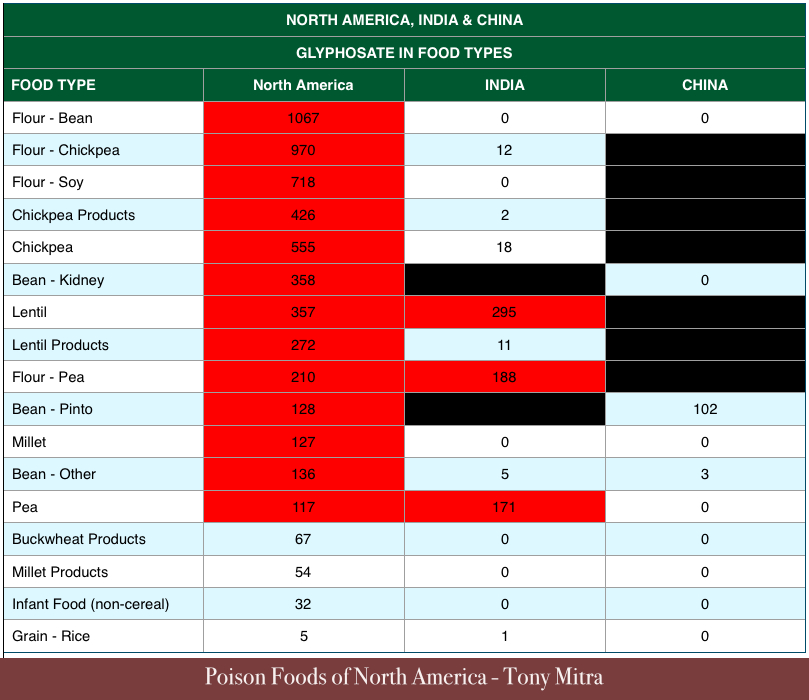
North America started with glyphosate first and has used it the most. As a result it is perhaps unsurprising, that their foods are the most toxic with glyphosate poisoning, as tested by the Canadian Government and shown in the book ‘Poison Foods of North America’ by Tony Mitra.
What makes glyphosate unique, along with some other related GM products, is that these safety test reports, records and raw data have been kept hidden from public for over 45 years now, by all governments everywhere. Meanwhile the public is bombarded by a plethora of unsubstantiated “independent scientific reports” that declare glyphosate to be safe. These independent reports, without supporting data, are just third party opinions and worth little more than bad quality toilet paper.
However, the table might be turning now, with an unbelievable rise of hitherto unknown or uncommon diseases suspected linked to glyphosate. However, there is not too much of independent research going on about glyphosate, primarily because the biotech corporations have mostly managed to control the research.
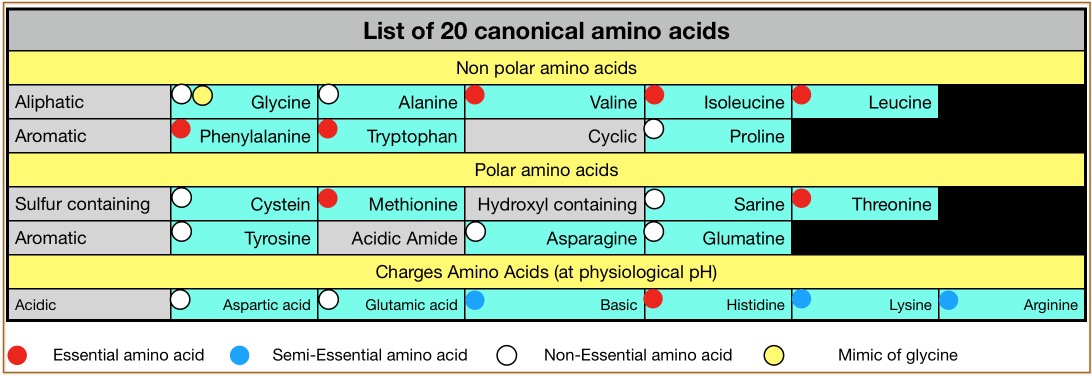
One of the most disturbing identity of glyphosate is that it biologically mimics glycine, one of the twenty amino acids that make up all the proteins. Only glufosinate is comparable in the sense that it mimics glutamate, another of the 20 amino acids that form the building block of all life. Unfortunately, there is insufficient research being conducted anywhere, on these aspects of glyphosate, and also glufosinate, in destroying everybody’s biology, by molecular mimicry and wrongful entry into our proteins.
Anyhow, things might be changing, as things sometime do. Many smaller nations have started banning glyphosate. Many states and regions within nations, such as in India and Sri Lanka, are selectively or regionally banning glyphosate. A key court case in the US has gone against Monsanto, where glyphosate was accepted as the reason behind the litigant, Mr. Dewayne Johnson, getting terminally ill with cancer.
Anyhow, Monsanto has now been purchased by Bayer, who is killing the Monsanto name because of the negativity attached to the company.
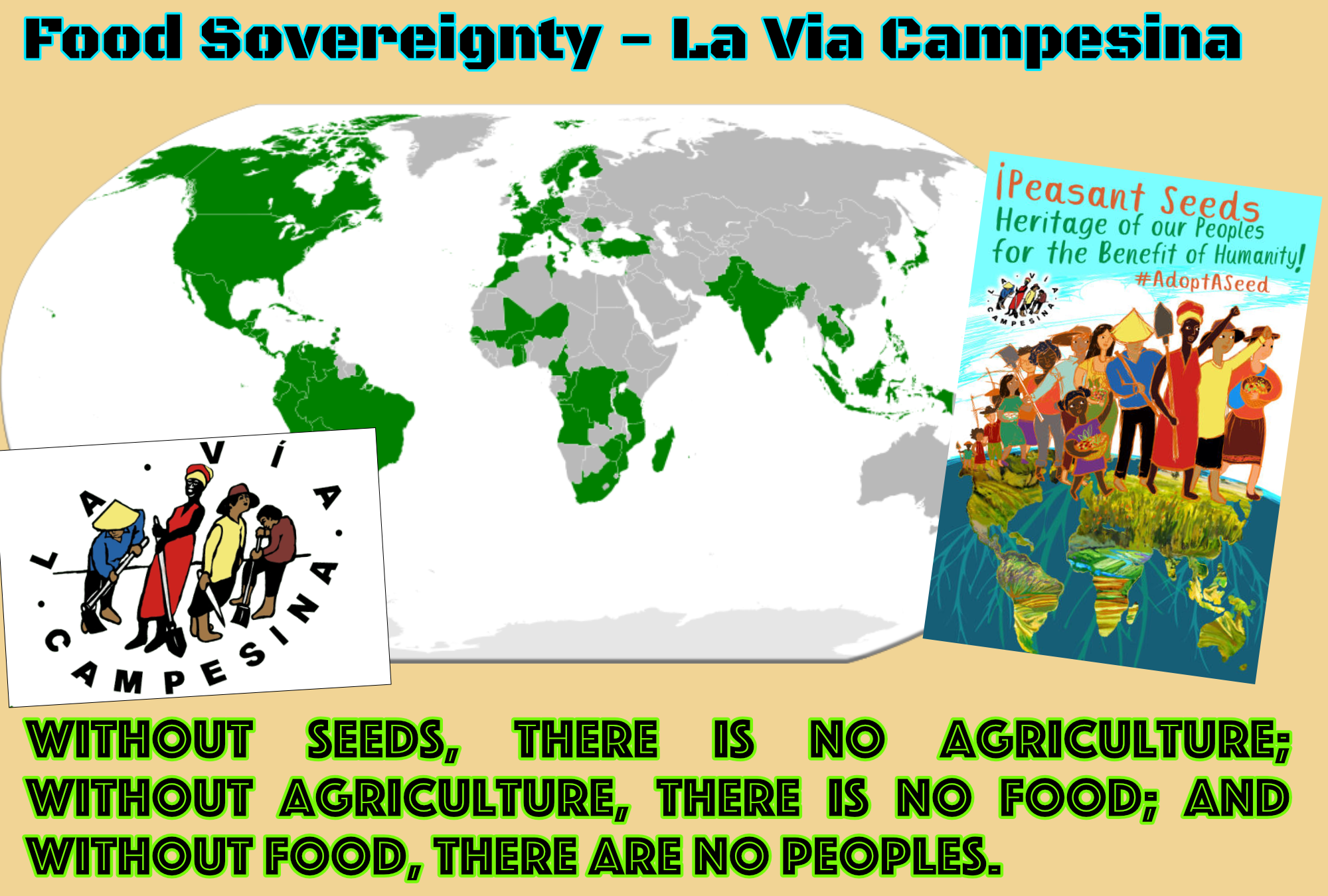
Under this backdrop, comes this news that the so called “transparency platform” of Bayer, will disclose “summaries” on glyphosate safety studies. I personally have a poor opinion on such summaries mainly because they usually lack supporting raw data and proof of safety, and because Monsanto had been tightly controlling past research on glyphosate and only allowed flattering reports to get published.
We shall not know the full truth about glyphosate’s safety, irrespective of smokes and mirrors from Bayer’s transparency platform without honest independent research outside of control of the biotech industry.
Independent nations should not accept safe limits for glyphosate as set by the western nations with a vested interest or the international bodies such as Codex Alimentarius that have long been infiltrated by corporate lobbies. They need to either conduct independent and unbiased test of glyphosate themselves and set their own safety standard, or ban glyphosate from their agriculture. Farsighted nations are already doing that, such as Venezuela, Mali, Nepal, Bhutan, Senegal and Bolivia. France and Germany are reportedly looking for a way out of glyphosate dependent agriculture. When will the rest of the world wake up ?
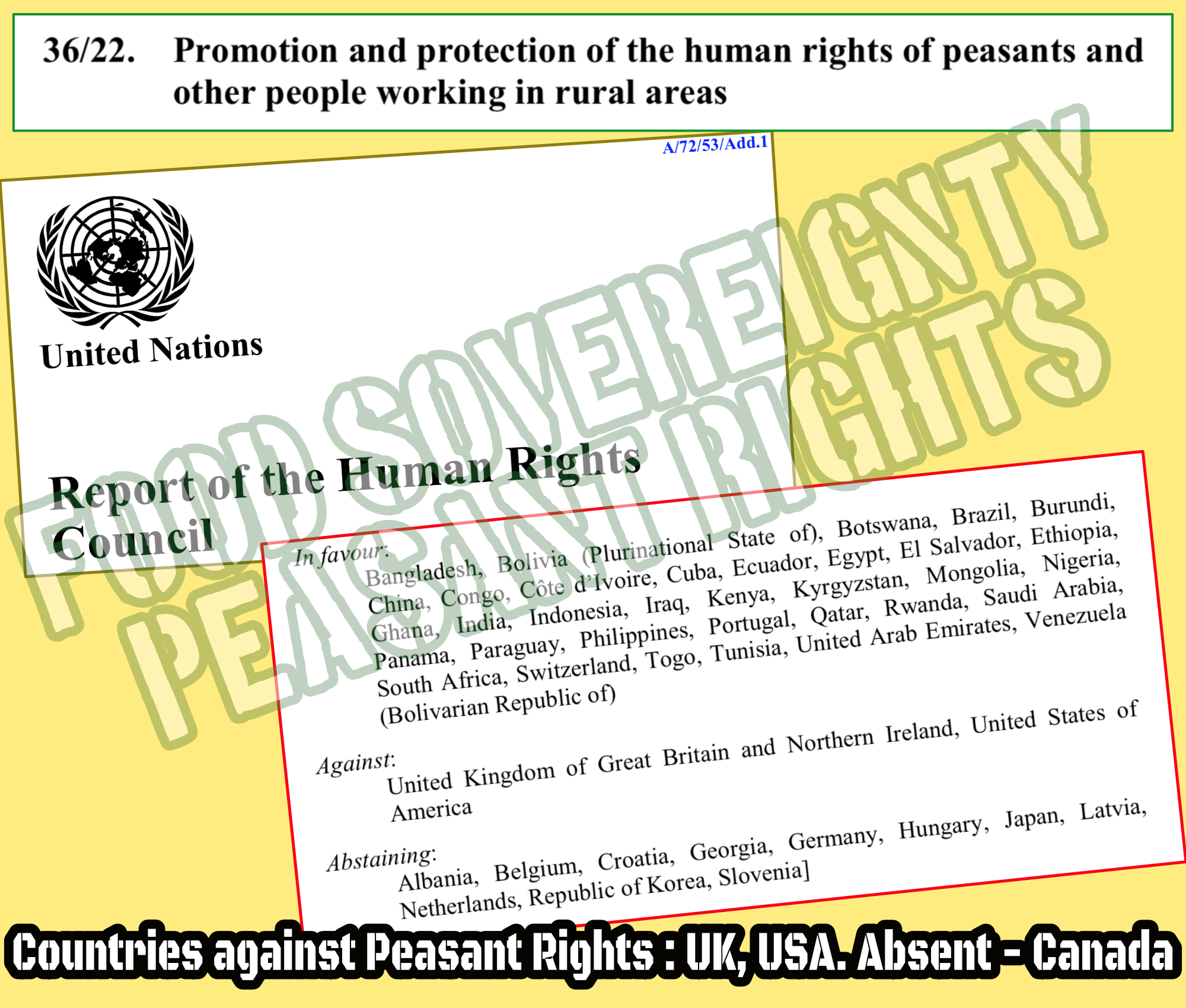
It is good to remember that institutions such as Codex Alimentarius has long been infiltrated by biotech lobbies promoted by the US and US controlled regions, to the extent that today member nations have less say than these corporations. Nations such as India would be sacrificing its food sovereignty and the future of its own farming and farmers, by following safety limits on glyphosate set by Codex Alimentarius instead of banning it first and checking its safety independently later if it likes. . Note how the US and UK opposes establishment of worldwide for sovereignty rights to farmers and nations.
So what is behind this Bayer’s disclosure regarding a possibly selective and partial transparency on glyphosate safety?
Well, some of my scientist friends, such as Thierry Vrain of Canada, suspect that glyphosate has gotten so controversial and indefensible that Bayer may be planning to kill Glyphosate, and replace it with their own glufosinate. Phasing out glyphosate might need dexterity if Bayer wants to avoid being sued into bankrupcy. Is this transparency ploy an attempt to engineer a safe exit for glyphosate and a safe entry for glufosinate?
After all, Bayer’s baby – glufosinate, is the only other broad spectrum herbicide that is also a mimic of yet another canonical amino acid – glutamate, and has similar potential to cause biological havoc by wrongly getting into proteins.
So Stephanie Seneff rightly ponders about a shift to glufosinate that could open up another wave of new diseases due to new kinds of protein disfunction, and bring more misery to the living world.
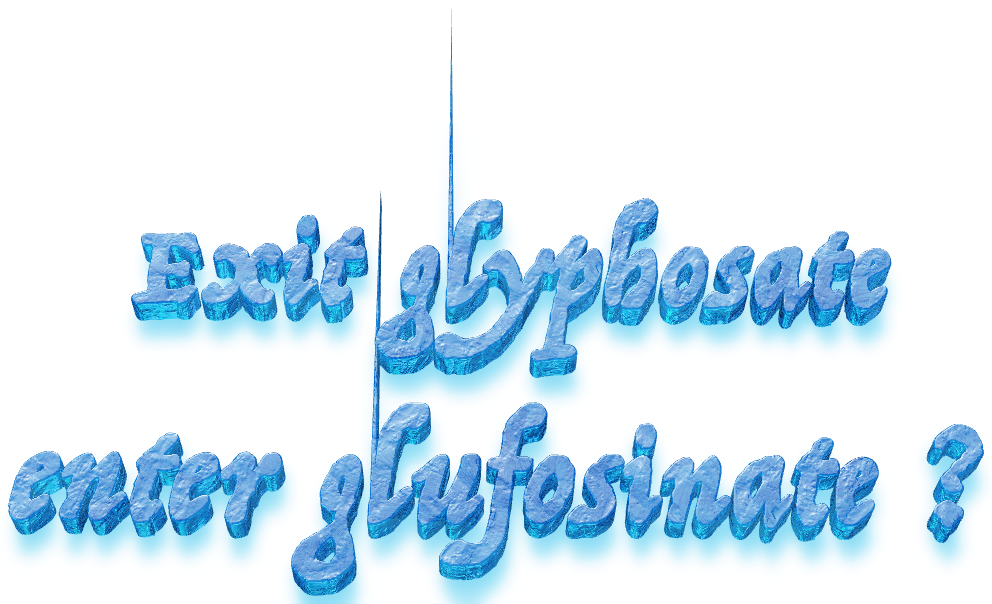
All this is happening because independent nations are not acting to the best interest of its citizens, and is bowing to western efforts to control their food web through toxicity. Ultimately, this is the responsibility of the citizens, you and me, to either preserve national food sovereignty, or to give it up.
Thats all for today.

